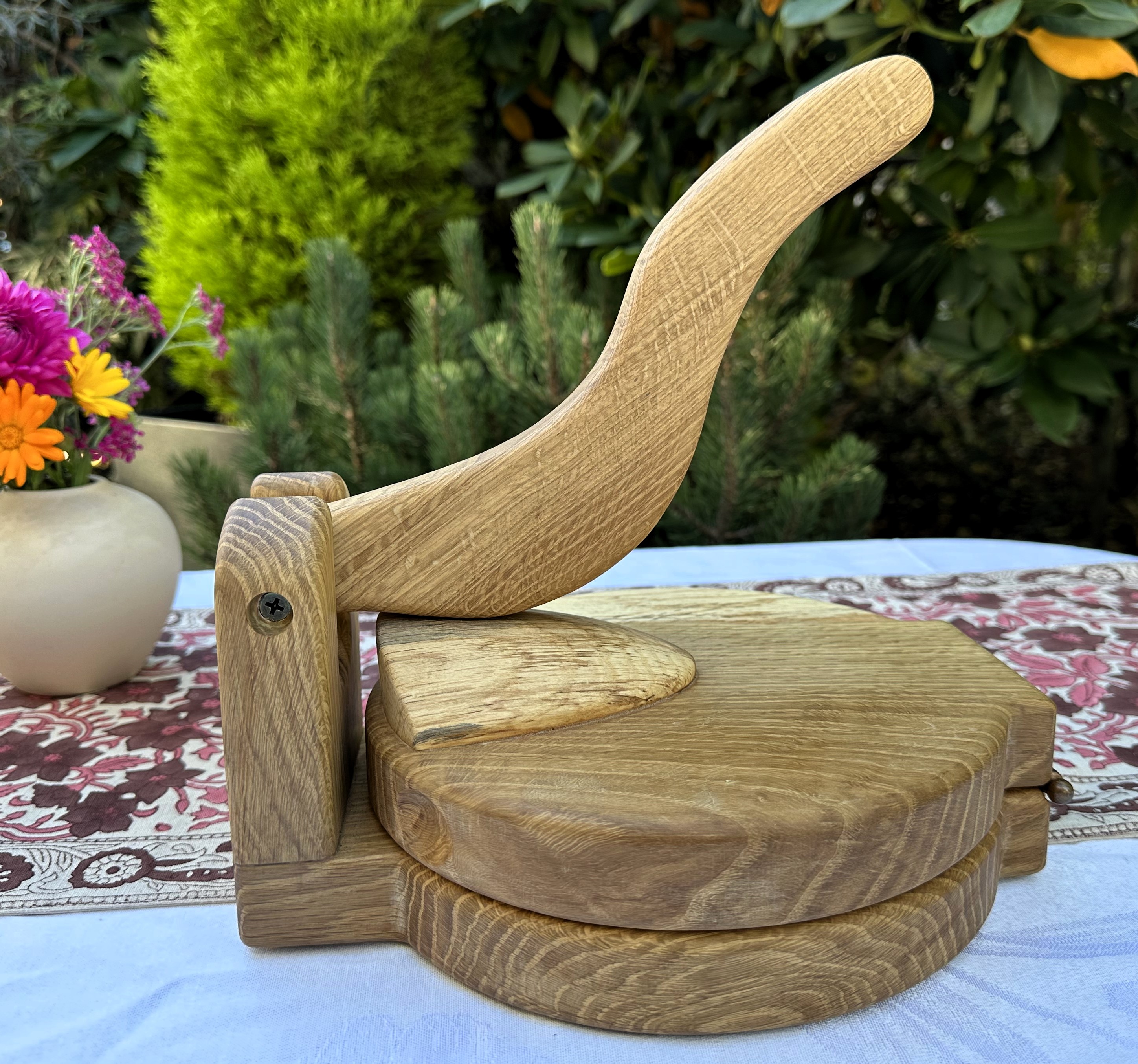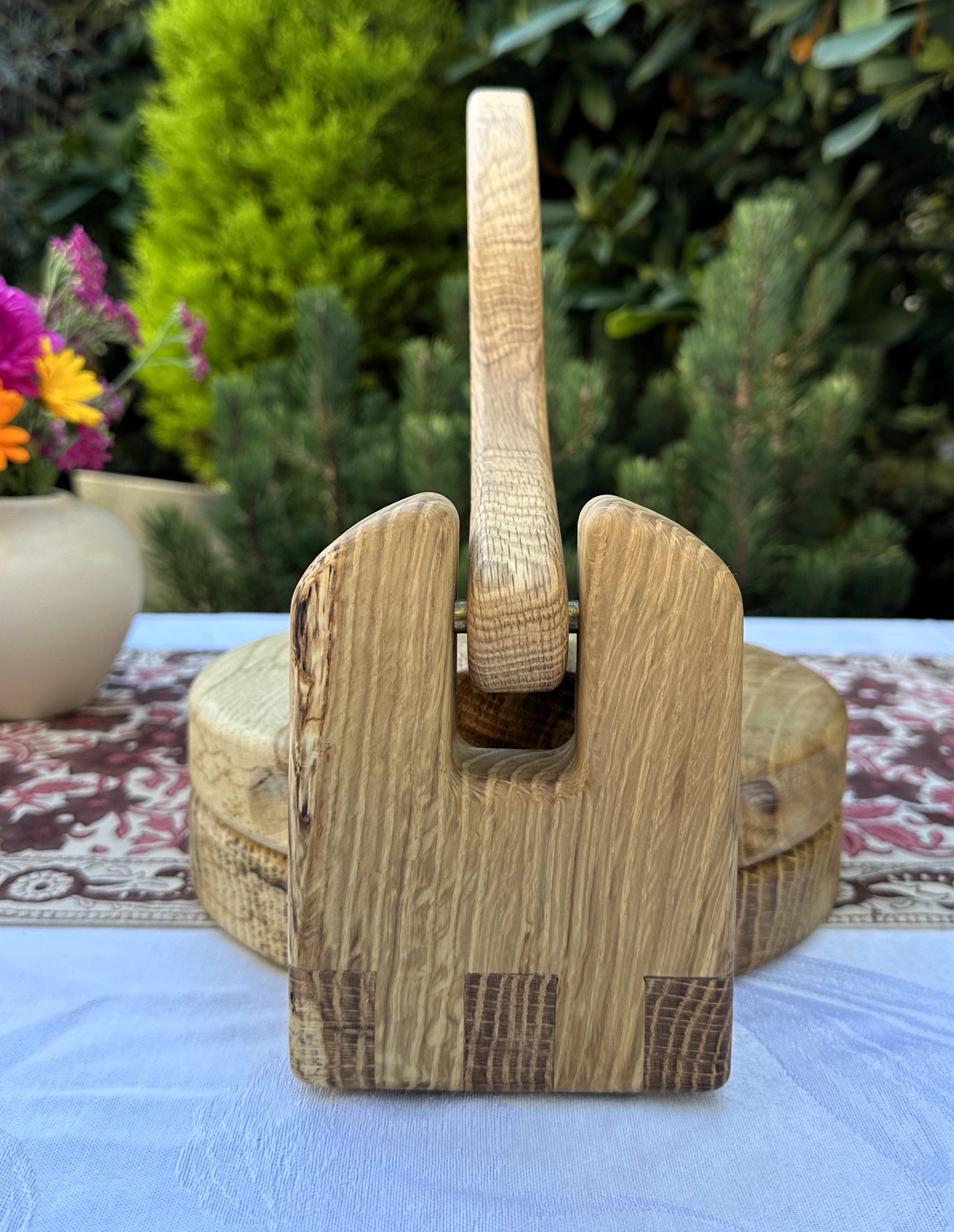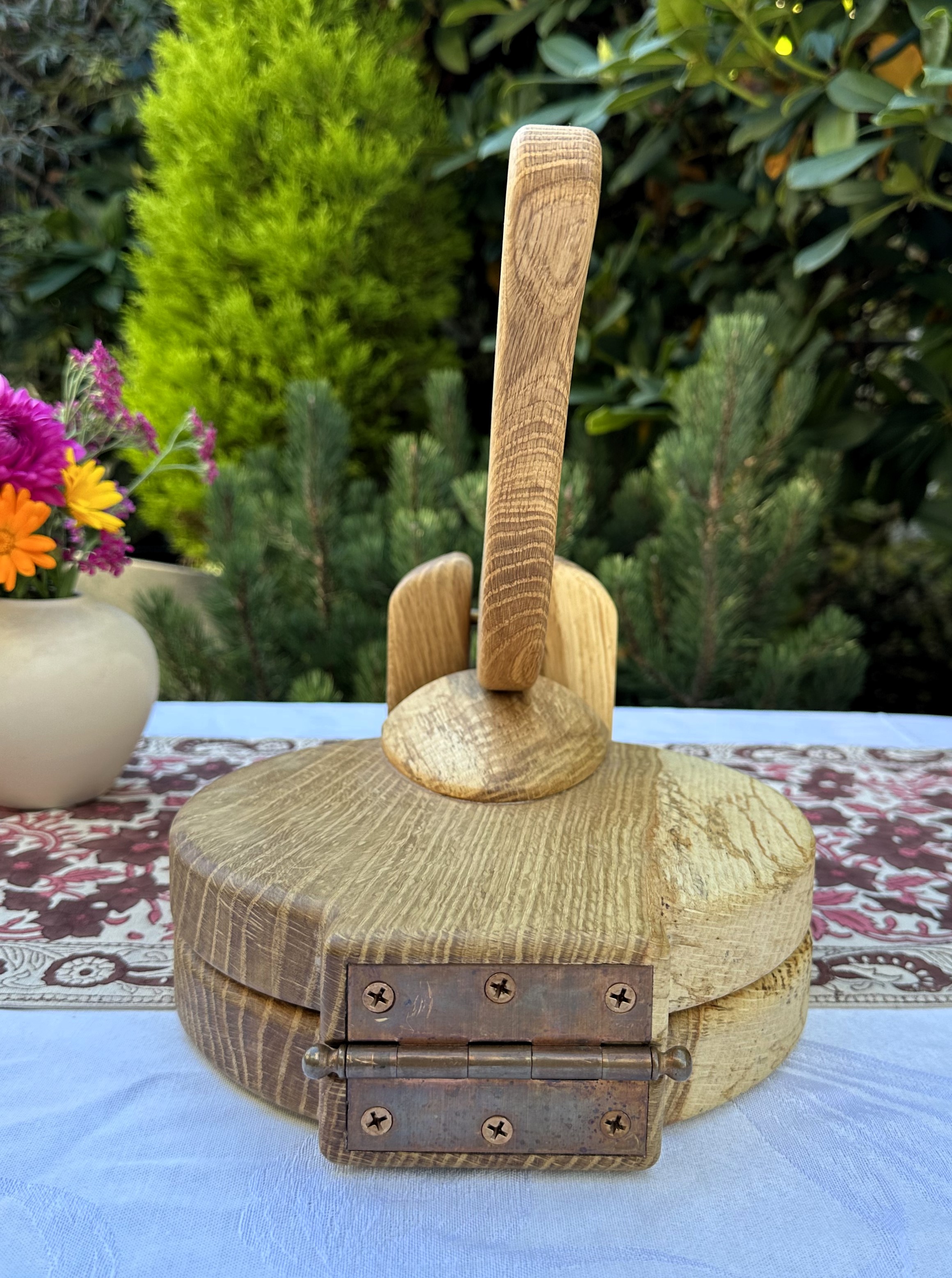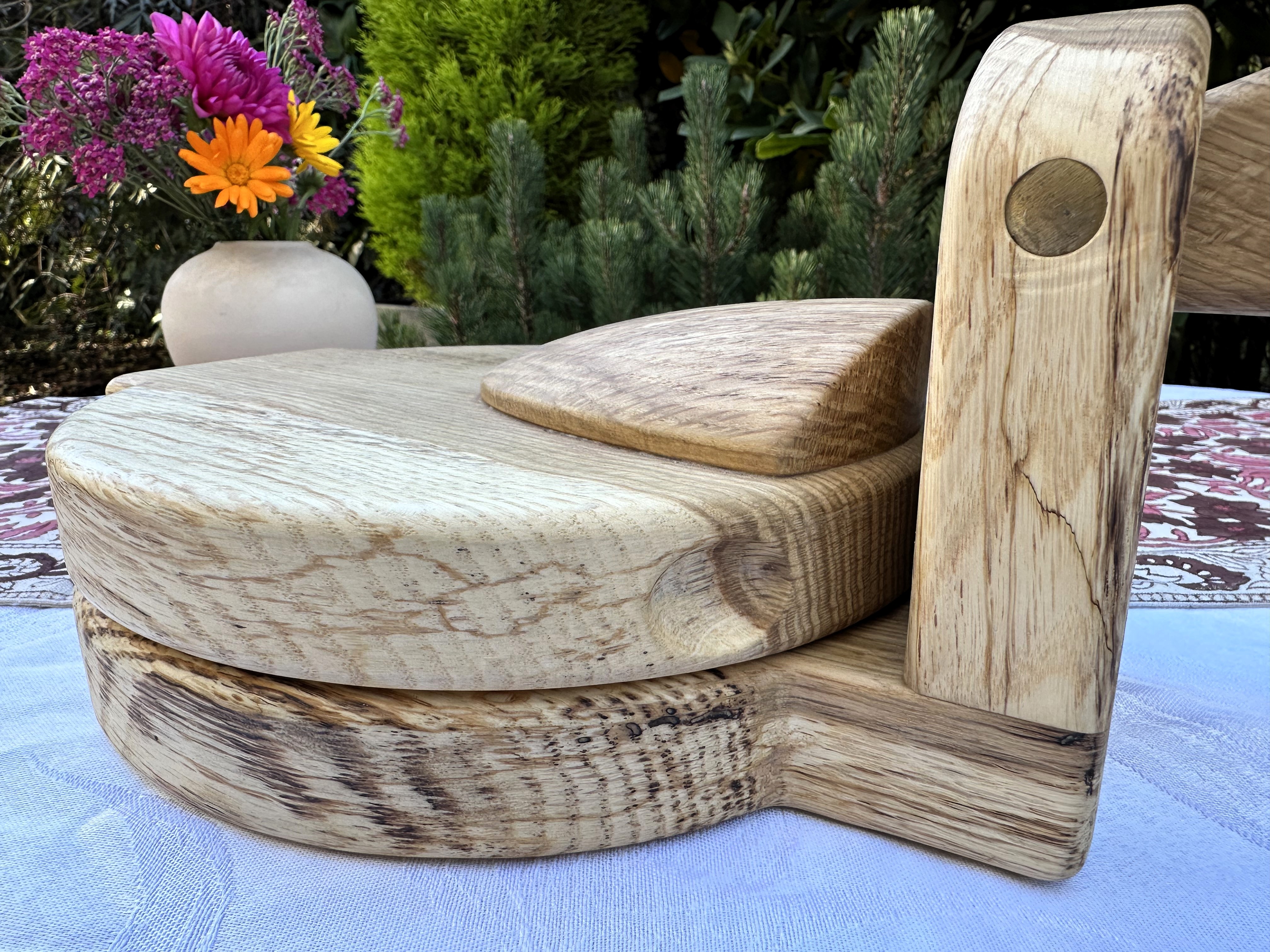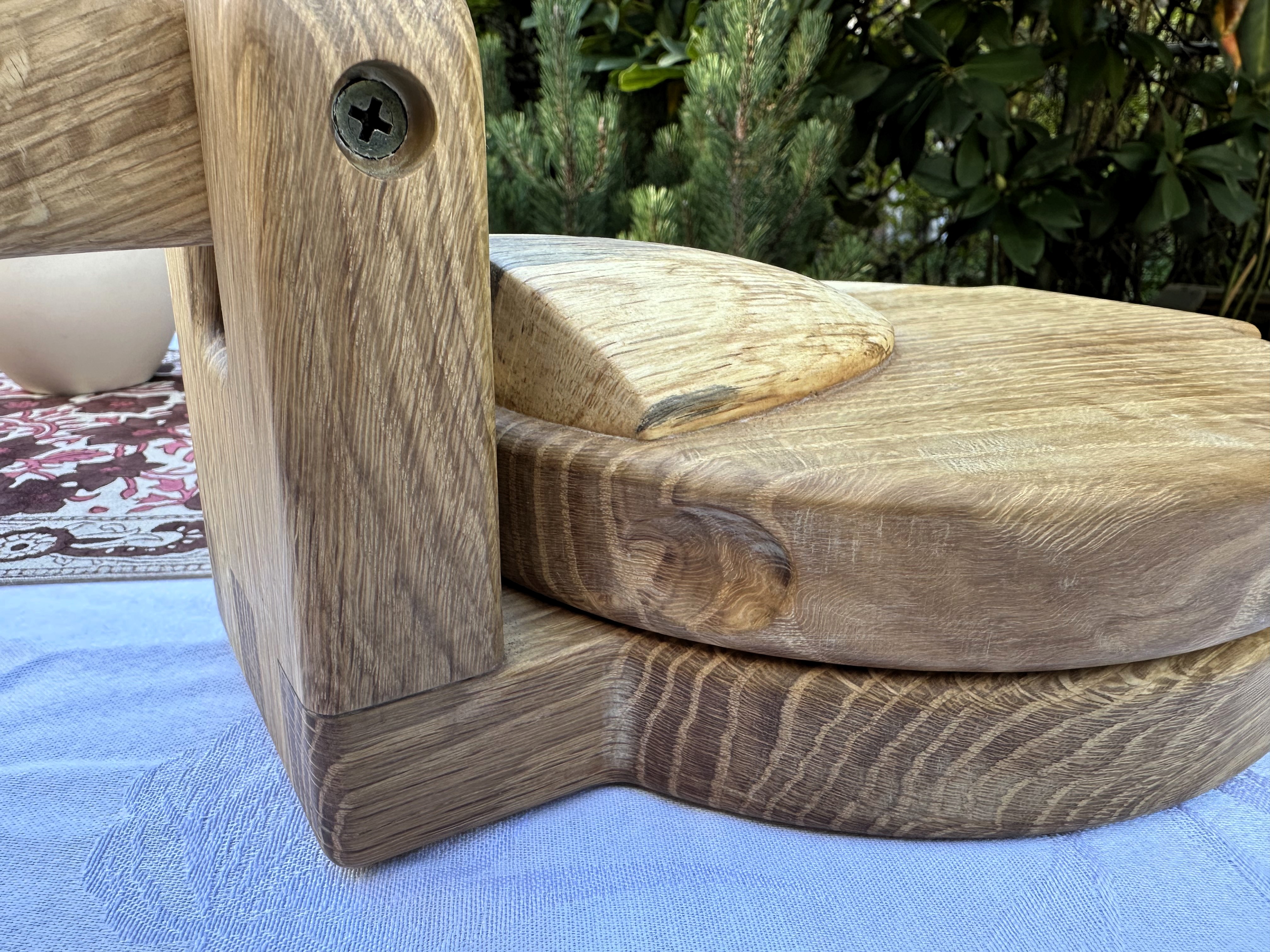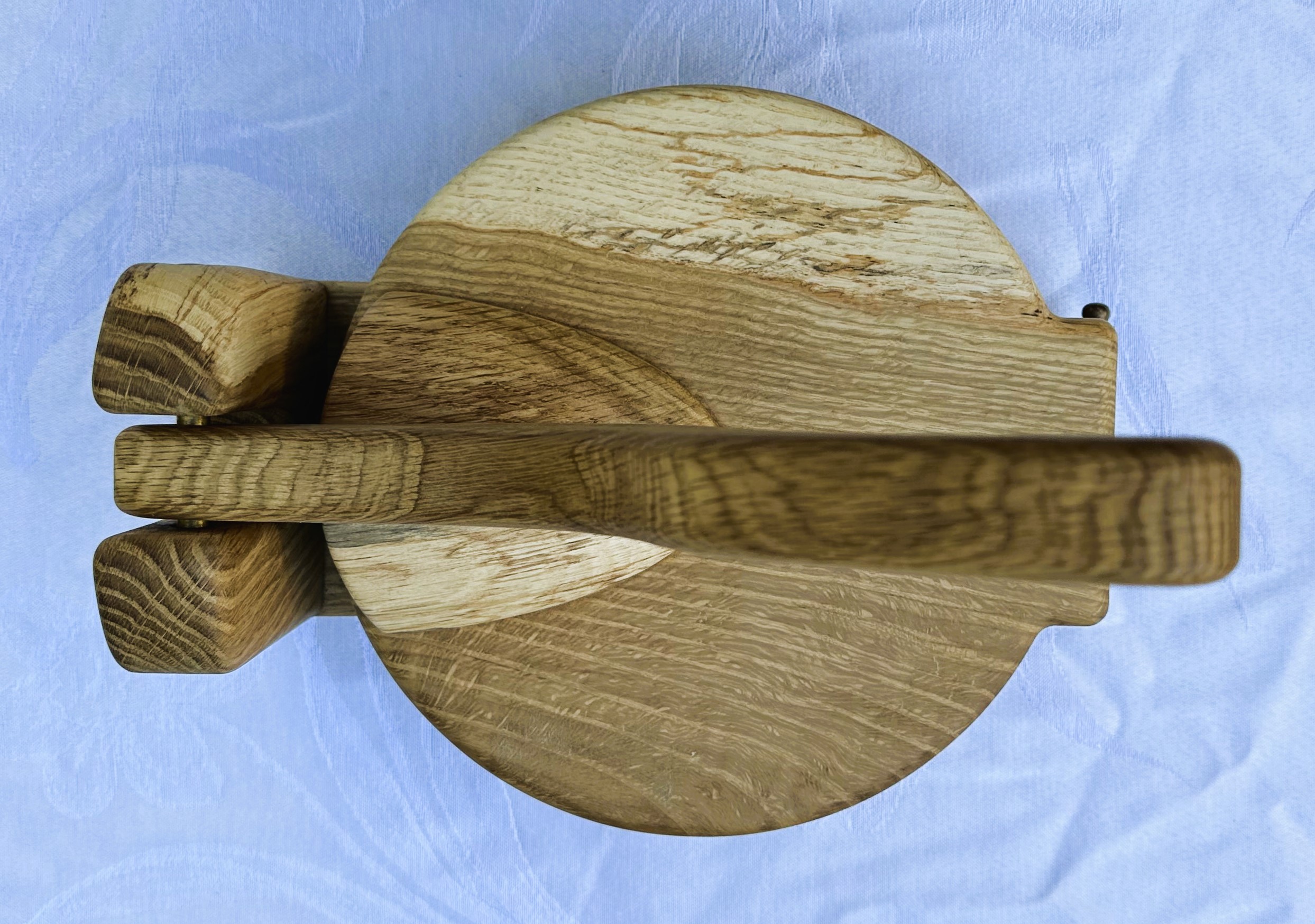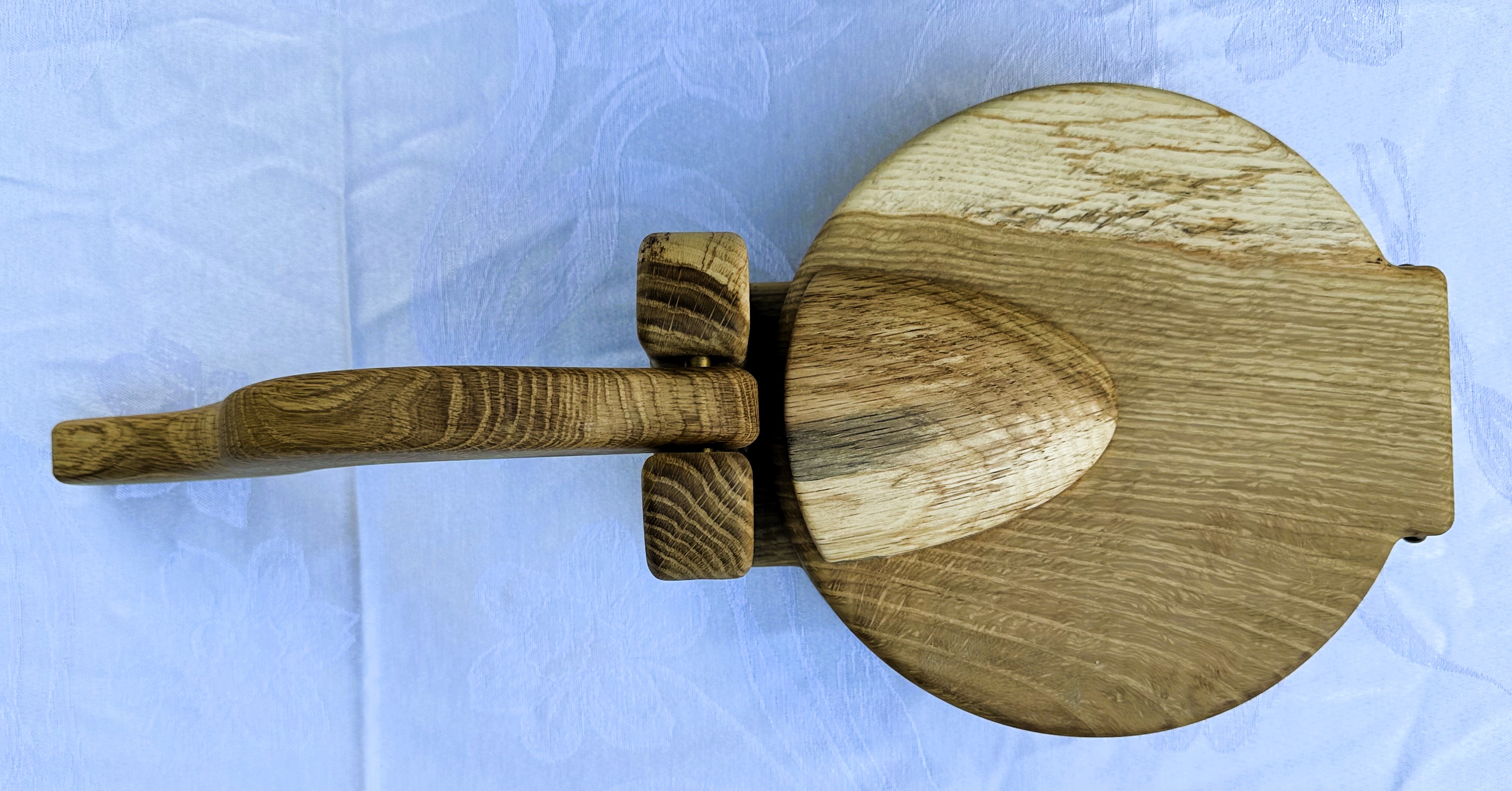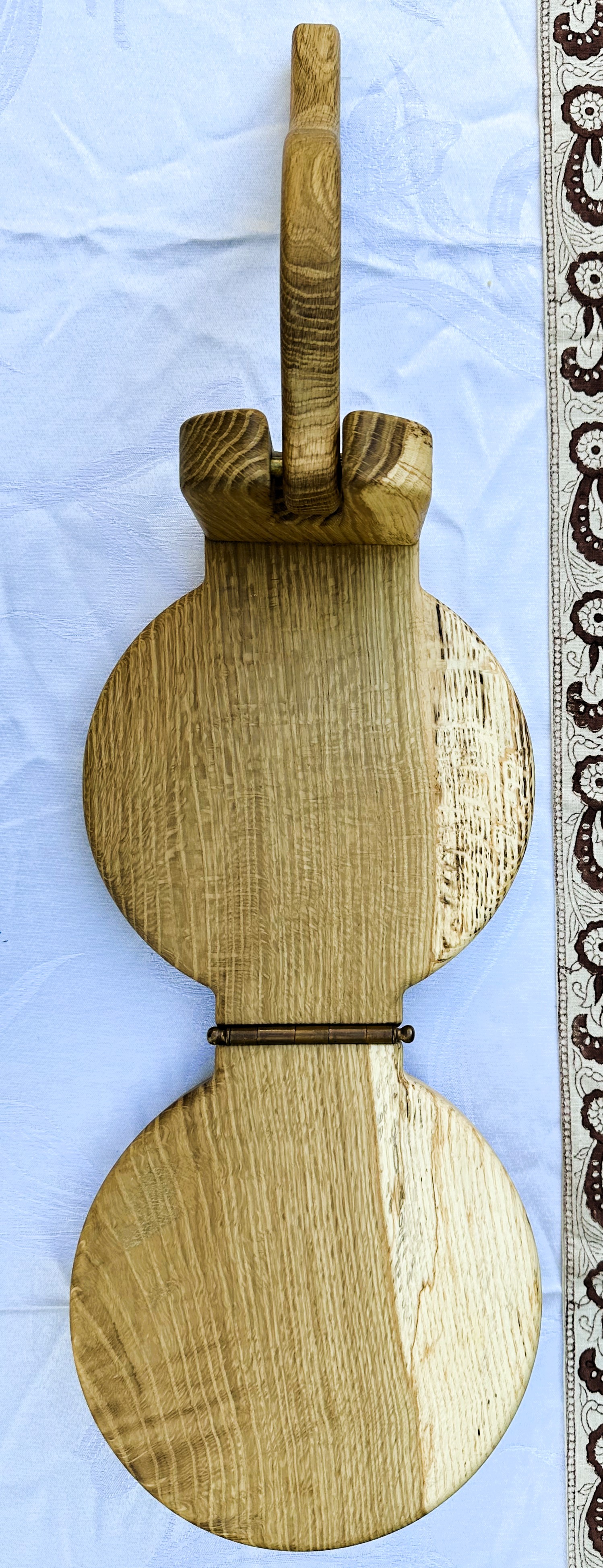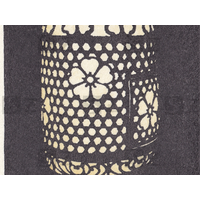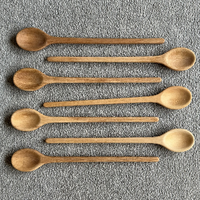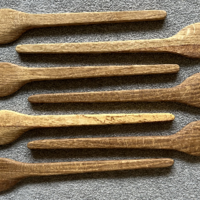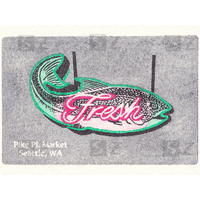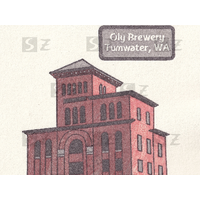About this Product
Tortilla press made from salvaged oak. Overall measurements are 8.5" wide, 10.5" long and 11" high. Weighs 6 lbs. 10% of profits donated to Latino Community Fund of Washington.
Currently I have one Oregon white oak press made and ready to ship. It is mostly heartwood with some spalted sapwood and a brass Stanley hinge from the 1920s.
They take about six weeks to complete but may take longer if I have to mill raw, salvaged lumber for the boards. The upshot is this provides a chance for some customization (e.g. engraving, finish, etc...). If you want one please contact me where it says "Contact Maker".
Serdar Zanati LLC

Meet the Maker
Serdar is a family name. Zanati means craft. I make cookware and tableware from salvaged wood. I also make cards and prints using the traditional Japanese woodblock printing technique know as mokuhanga. The studio is in a beaten down Airstream in rural Thurston County (South Puget Sound).
Aspirations / ethos
Sustainability: I endeavor to use salvaged or waste as material for goods. My objective is to create no demand for virgin raw material (i.e. not cut down trees). The exception will be for mokuhanga. I will still use sustainable, handmade Japanese paper (washi) and cherry or shina blocks for carving. I will use the most nontoxic supplies available and be transparent about what I use. I will also regularly review every part of the operation for opportunities to increase sustainability. Long term, I hope to operate the studio using on-site solar.
Justice: I will try to be as racially just as possible. I will try to give to and support communities that have experienced discrimination and suffered from white supremacy by sharing profits. I will try to mitigate cultural appropriation: whenever I make and sell a product that does not have an origin in my own cultural or ethnic background (Mediterranean and Adriatic) I will acknowledge the cultural source and make a contribution of profits to try to respect the source.
Humanity: I commit to continuous learning, being open, and active listening. I will make mistakes, but I will own them and take corrective action. But, for all these aspirations, I will not let the perfect be the enemy of the good.
Transparency: I will share, upon request, information on all donations made in the prior year. I will also disclose the makeup of everything I sell (e.g. type of wood, type of wood glue, type of finish, etc...)
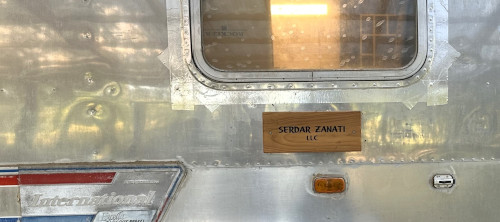
How it’s Made
Tortilla presses are made from several large hardwood boards. The individual pieces are cut by CNC then shaped, sanded, assembled, and finished by hand. Joins are made with Titebond 3 wood glue. This is a PVA glue that is food safe but not biodegradable.They are finished with Osmo polyx hard wax oil. I use a brass architect's bolt as the handle pin and use antique hinges to combine the top and bottom of the press.
Shop Policies
Shipping and Returns
All items are shipped via USPS.
No returns for prints.
Returns are permitted for woodworking within 30 days from the date of the sale. Shipping will not be refunded and you must pay for return shipping.
FAQs
What is mokuhanga? Mokuhanga is a traditional Japanese printing technique. It uses non-toxic water based pigments and hand printing.
Do you get a kick back or commission from the products you use/name? No. I include the name of the products I use to make things for your information only. I want to be fully transparent so that you can verify my claims of safety and sustainability.
How do I care for the wood spoon, dish, etc…? All items should be gently hand washed only. None of the items should have prolonged exposure to liquid. Currently I use two types of finishes on wood items: either (1) Osmo polyx hard wax on dishes and tortilla presses, or (2) tung oil on spoons, stirrers, and spatulas. The hard wax should last a very long time without issues. But it is very slightly porous so it can be stained or allow liquid entry after prolonged exposure (e.g. if you leave a dish full of olives overnight the brine will probably stain the wood). It will take a long time and a lot of use before tung oil wears off a piece. Tung oil can be easily and safely reapplied whenever it wears off from use.
Are all of the items food safe? Yes. Being safe, nontoxic, and sustainable are priorities for me. The wood I use for cookware and serve ware is itself non-toxic. The wood finishes are safe and biodegradable. I do use PVA (wood) glue to make butcher block, joins, repair of cracks, splits, and filling beetle holes. PVA glue is food safe but not biodegradable. I am actively trying to get a more sustainable wood glue but current, viable options are limited.
Do you do custom work or customize the things you sell? I am open to try. Contact me where it says "Contact Maker", describe your vision and we can figure it out. It may mean that the thing you want costs a bit more and takes longer to make.
Why are your things so expensive? I put the question back to you: what does expensive mean? You can buy a wooden spoon made or distributed by a big corporation for an outrageously low price. But they obtain this price in large part by externalizing costs. This might mean destroying endangered habitat for raw material, using cheap coal power in manufacture, or exploiting child labor in unregulated places. So you will pay a low upfront cost, but you (and subsequent generations) will also pay a very high long term cost to mitigate the externalities. Everything I make has my hands on it and involves a lot of work. That can include processing the raw material: picking up a disposed tree trunk, drying it, rough sawing it, milling it, all before starting the work of making the final piece. I try to do all of this in a thoughtful, caring, sustainable way. I have very limited identified externalities. So the cost listed is as close as I can get to the real cost.
